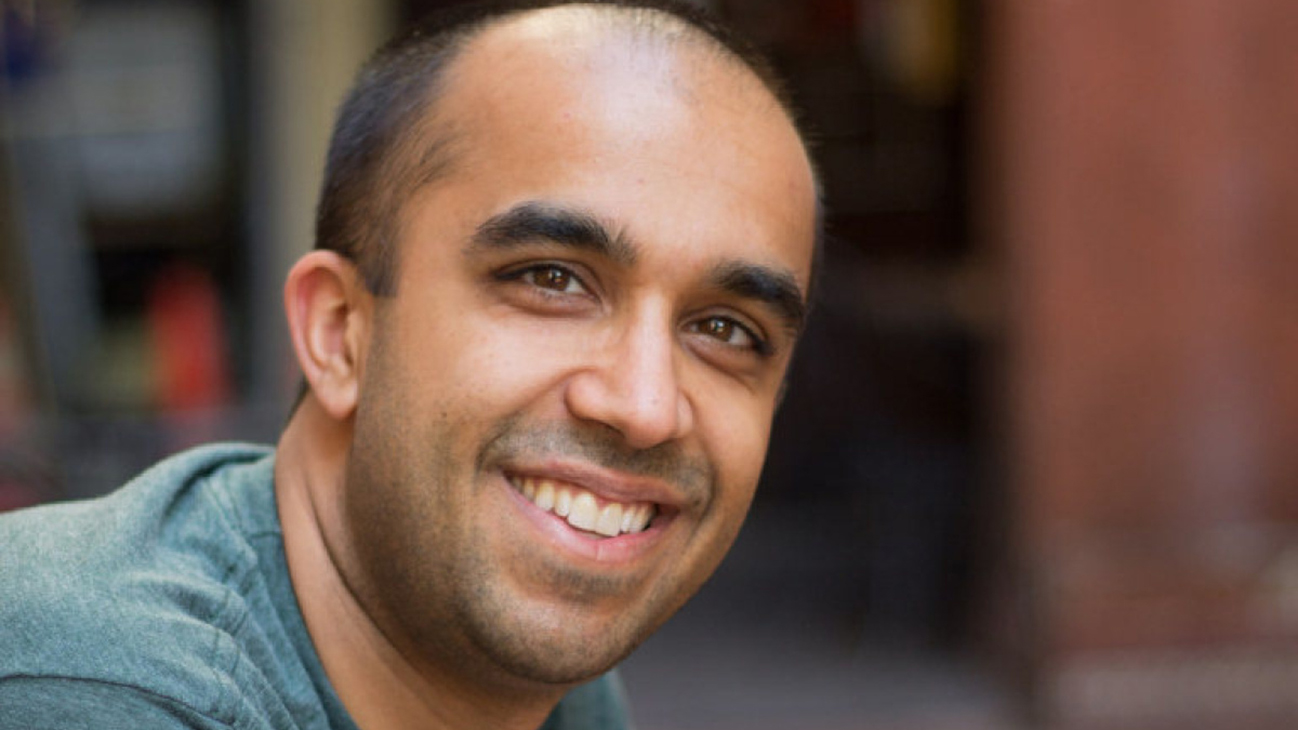A Harvard MBA, New York Times bestselling author, award-winning blogger, and one of the most popular TED speakers in the world, Neil Pasricha dazzles audiences with ideas and frameworks that skyrocket happiness into the stratosphere. With infectious enthusiasm, heartfelt authenticity, and a “what works” authority, Pasricha draws on the latest research in happiness to increase individual performance and create a more positive and productive workplace.
In his latest column for The Toronto Star he outlines his scale—the Duck Scale—for making decisions quickly and effectively:
Do you remember movie rental stores?
They’re an endangered species now, but when I was growing up there was one called The Movie Shoppe in my hometown. It was full of aisles and aisles and aisles of movies for rent. The place was always packed and gave free popcorn in paper bags at the front door so there was the faint smell of going to the movies floating in the air on top of all those stained black and red movie-reel carpets on the floor.
When I was little I went there a lot with my family. My parents were happy with whatever we rented. What movie should we watch? That was a zero on their Duck Scale. My younger sister had an opinion. But she was pretty flexible, too. And I was the domineering older brother here. Movie choice was about a five on her Duck Scale.
Now for me choosing a movie was always a massive decision. I figured my family rented a movie every four weeks so this was the primary entertainment baseline for a month. We would talk about this movie for hours. Plus, a two-hour movie was eight total viewing hours for our family. A huge investment! So it was well worth spending time walking down every aisle, taking inventory of every movie in stock, reading box covers, comparing ratings and reviews, and then eventually making the best possible pick with the widest possible appeal.
As you may have guessed, picking a movie was a 10 on my Duck Scale.
The Duck Scale is a simple way to quickly sort out joint decisions by understanding how important the decision is to each person.
The Duck Scale answers the “How big a deal is this to you?” question that generally sits silently below the “What do you want to do?” question.
Why is it called The Duck Scale?
Picture a super eager three-year-old being completely jacked about going outside to build a snowman? They’re all worked up. They’re super excited. They’re flapping their arms like a duck!
Now think of how many seemingly small decisions you make with the people closest to you each day.
Where will you and your best friend go for lunch? What do you and your spouse want for dinner? How do you and your mom plan to spend that Sunday afternoon?
Here’s a little example.
Say your spouse gets home and asks if you feel like Thai or spaghetti and meatballs for dinner. When you say Thai she says “And where is it on your Duck Scale?” You say three. You like Thai! You feel like it more than Swiss Chalet tonight. But you’re flexible. And what about your spouse? “Oh, it’s a nine! I’ve been craving meatballs all week. And I got my grandmother’s spaghetti sauce recipe out yesterday and make sure we had everything. I really want to eat in since we’ve been eating out so much. So, it’s a nine! Definitely a nine.”
Would knowing those two numbers help make the decision?
The Duck Scale works for my wife and me because once we’re able to quickly understand who values the decision more, we generally let them decide. The decision takes seconds instead of minutes and we keep on moving.
. . . Unless, of course, it’s which movie to watch on Netflix.
Then I need to do an hour of research first.

